7713 people reached on Lassi with Lavina FB page – 731 engagements – 54 Likes – 10 comments on FB
335 views on LinkedIn
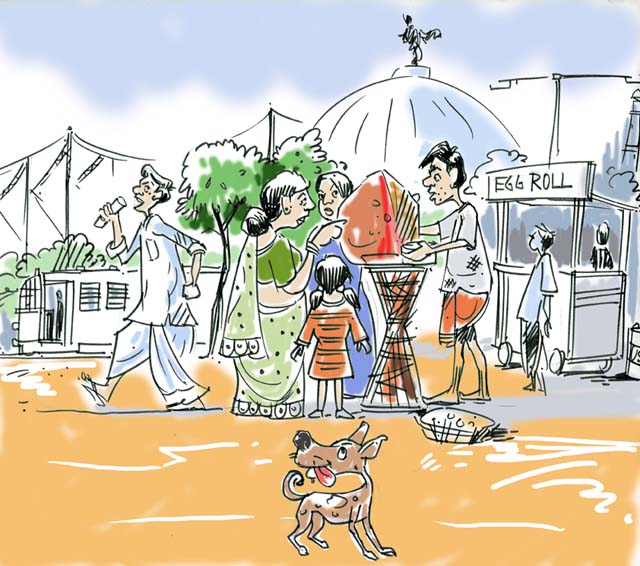
Sandeep Chakravorty on The Revenge of the Vegetarian
[dropcap]G[/dropcap]rowing up in a Bengali family, being a so-called non-vegetarian has been second nature to me. Bengalis are as non-vegetarian as can be. My father earned a government doctor’s pittance of a salary which would run out well before the month was over. He was an avid fish lover and as a result he had a running credit account with the fishmongers of Delhi’s INA market.
I recollect my mother always asking us when we returned home after attending wedding receptions whether the food was vegetarian or non-vegetarian. If the answer was vegetarian, she had little interest in going any further. Only if our hosts had passed the non-vegetarian test would my mother venture to ask about the bride and her jewelry.
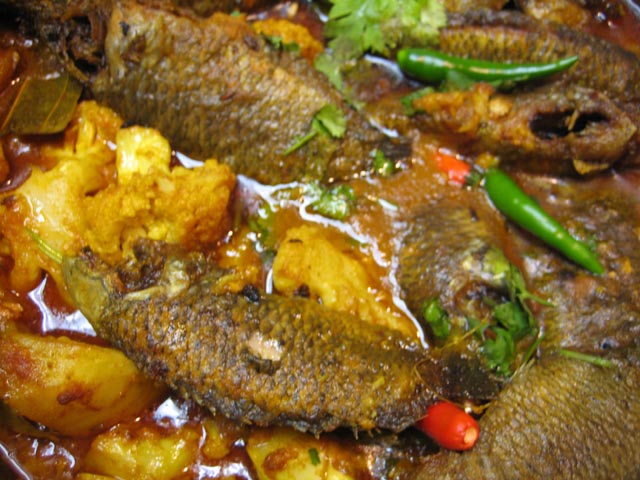
[dropcap]B[/dropcap]y growing up in such an environment, I had little understanding of vegetarians and had never taken them seriously. I was a kind of a non-vegetarian fundamentalist, experimenting and trying to convince people to eat meat, almost disrespectful of people who didn’t enjoy it. I remember this episode from first year in management school (IIFM, Bhopal) when as mess secretary I asked the mess boy to reheat the left-over lunch and serve it as dinner for the vegetarians while the non-vegetarians had fresh chicken curry to feast on. Not unexpectedly I was unceremoniously dumped from the post of the mess secretary the very next day.
Since then life has tried to make me understand vegetarians and vegetarianism in greater detail and I have begun to appreciate why people are vegetarian and become vegetarian. Vegetarianism is an evolved concept involving great deal of self-control and perhaps is the solution to many of our global challenges including climate change and violence. And my own personal world has also evolved and changed.
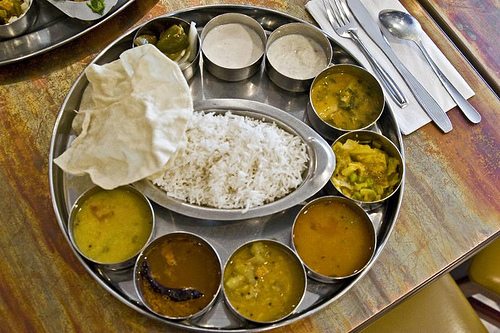
[dropcap]O[/dropcap]ne may think that being vegetarian is plain and simple. Or food is a simple and binary choice- either you meat or not. It is not. It is not only a choice between being shakahari or niramish (vegetarian) and masahari or amish (meat eater or non-vegetarian). Perhaps we are all more mishrahari (omnitarians, if such a word exists).
In the West people may be mostly vegans or meat eaters, although even in the West and particularly in the US, there are many complications in food habits as people are eating less meat as eating meat is becoming less trendy. Americans eat about a third less beef than they did in the 1970s, even though an average American consumes almost 215 pounds of meat per person per year as per OECD data of 2016. Traditional meat eaters are moving away from it and alternatives such as ‘beyond meat plant based burgers’ are booming.
Some change is due to health reasons and some due to impact meat production has on carbon emissions. The New York Mayor has introduced ‘Meatless Mondays’ in schools and something impossible to even visualize in the past i.e. the ‘impossible burger’ a meatless patty burger is now a new rage.
[dropcap]O[/dropcap]ne now often runs into Americans who say that they do not eat meat, are vegetarians and eat only fish. Some others are vegetarian on some days, by choice, and not on others. Veganism is also growing and thanks to it, these days it is easy for Indian vegetarians to find food in American restaurants. Early immigrants tell horror stories of having to survive on bread, butter, milk and bananas only. Even vegetarian soup had meat broth.
In India, we are used to being vegetarian or non-vegetarian. In airlines and railways, the constant, irritating if not annoying query of stewards is always: “Sir veg or non-veg?” Unmindful of foreigners, whether they understand or not. But dig deep and it isn’t so simple. The vegetarian pantheon has many gods. Even the orthodox ‘Hindu Vegetarian Meal’ can be quite varied.

[dropcap]O[/dropcap]ur food also has a philosophical underpinnngs (from the Ayurveda) in terms of being Sattwic (originates from the word for true or truth), Rajasic (root is raj meaning royal) and Tamasic (root is tamas meaning darkness). Tamasic food is supposed to arouse basic instincts while Sattwic food has a calming effect on the body. Rajasic food is balanced. Sattwic food is recommended, tamasic food is best avoided and rajasic food is acceptable. So many foods classified as tamasic are not used in preparation of devabhog (food offered to Gods in temples). Onions and Garlic are clearly tamasic and never used in preparation of devabhog. Even among lentils, moong is the most sattwic while masoor is considered tamasik.
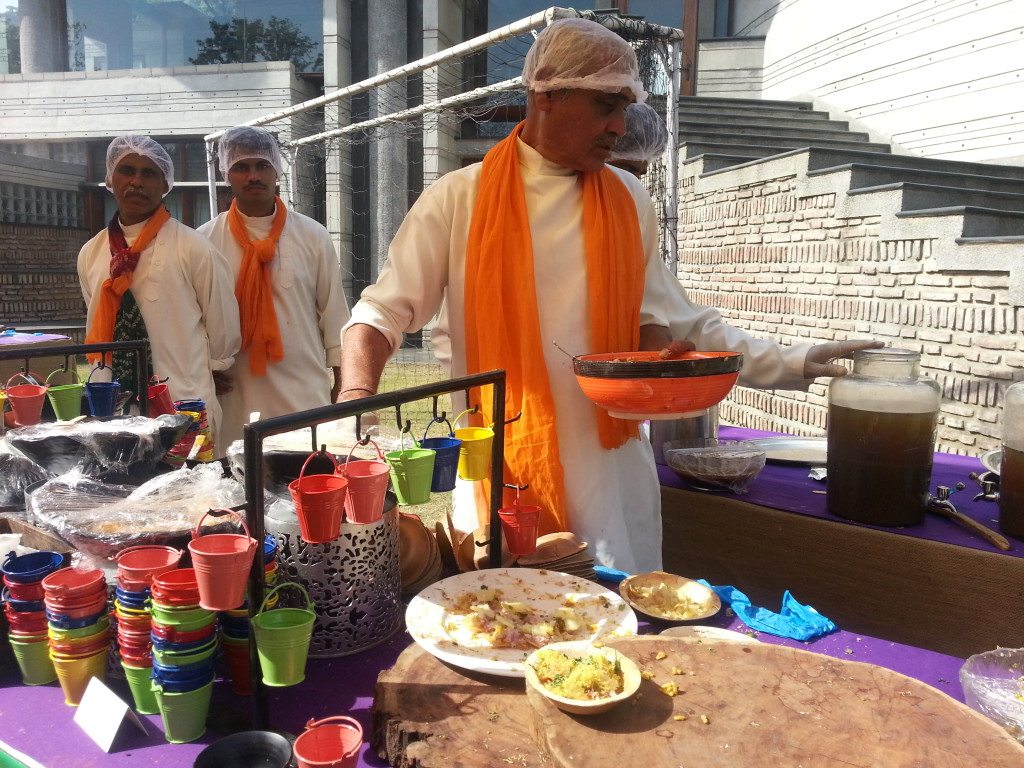
[dropcap]T[/dropcap]raditionally, for many, vegetarianism is not a matter of choice but a question of birth and rites of passage. Hindu widows, traditionally, are supposed to live very austere lives and only consume sattvic foods. If you are born Jain, you are likely to be vegetarian. If you are a Hindu from Gujarat your food choice is destined to be restricted to vegetarian fare.
If from Bengal, then it is most likely that you are non-vegetarian or at least a fish eater. Bengalis are synonymous with fish and that too river fish. A Kashmiri, whether Pandit or Muslim, is a compulsive meat eater and consumes mostly goat meat. It is no longer only a question of where you are born or born veg or non-veg, but also choices and circumstances. Food choices are layered and textured and needs probing. Far from being binary, it is actually quite impossible to classify food habits of people, even vegetarians.
[dropcap]W[/dropcap]esterners reporting on Indian vegetarianism is lop-sided and agenda driven. Recent reports border on proclaiming loudly that India is actually a non-vegetarian country, many even eat beef and number of vegetarians in India may actually may be quite small. This is done mostly by foreigners, even of Indian origin, who are not willing to understand the deep seated psyche of Indian vegetarianism.
Even the most compulsive meat eater in India also eats at the same time, if not simultaneously, then consecutively, lot of vegetarian food. Meat and fish is not cheap and even compulsive non vegetarians have days when they do not eat meat such as during festivals, shraddh, in case of death in the family and on many other occasions. Vegetarianism all over the world is a complex phenomenon and means different things to different people.
Speaking to people and media reporting in recent times and of course out of my own life experience, I try to bring some method in the madness by attempting a classification of how being vegetarian may mean different things to different people. It is a spectrum ranging from being very strict due to religious ordain to being flexible depending on the environment and conditions.
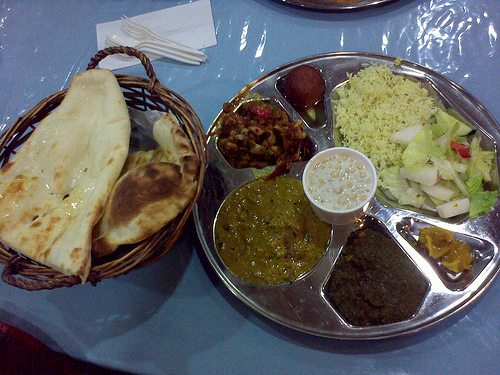
[dropcap] I [/dropcap]have been able to find 10 types of vegetarianism. It is a classification of diets and not people, and exceptions are there. One can always find a Jain eating meat and a Bengali detesting fish and also Muslims who do not enjoy meat. Here I am tempted to narrate this tale shared by my colleague, Vipul Mesariya, whose college mate was once waxing eloquent on how tasty the chicken curry he had that evening was. When his friends pointed out that he was a Jain, he replied quite nonchalantly that the chicken had been prepared in the Jain style- without onions and garlic.
1. Vegan
Mostly Western concept. Avoid everything of animal origin. So milk, cheese, yogurt and even honey are out. Of course no types of meat, fish or eggs can be included in the diet. Extreme vegans also exclude contact with leather and are PETA supporters, and have rebellious, environmental, progressive undertones. It is revolutionizing the culinary scene in the US, although tofu based veggie meat mimicry can challenge one’s taste buds.
2. Jain Vegetarian
All meats, fish and eggs are out. Onion and garlic are not allowed and neither are root vegetables such as potato, radish, carrots, yam and cassava. In the strict sense even ginger is off the table. In the relaxed Jain diet however, potatoes and ginger are in. Some may extend it to include onions and garlic even. But eggs and all meat are forbidden. Significantly, due to the efforts of Jain monks, Palitana in Bhavnagar, Gujarat has become the first vegetarian city in India where sale of eggs and meat has been banned since 2014.
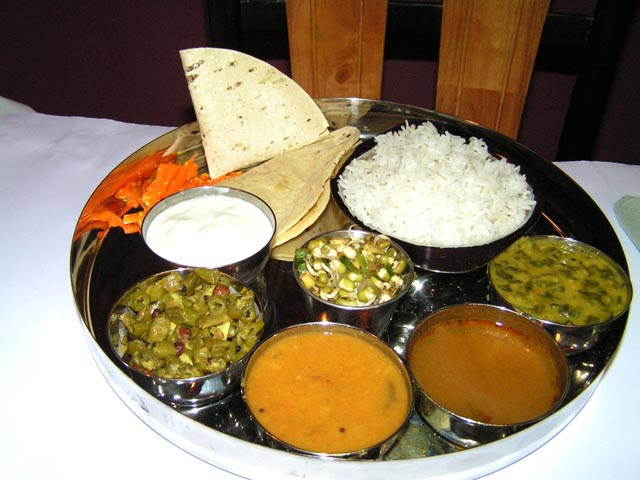
3. Vaishnav Vegetarian
Mostly practiced by Goswamis of Brindavan, ISKCONites and other communities. For them all meats and fish are out. But milk is in. But onion and garlic is a big no no, although ginger is kosher. They are very strict with their diet and go the extent of seeing ingredients in food packaging and know which ingredient has animal origin and which do not. Many carry small lists with them and can be found cross checking while purchasing bread or cookies. In this category we could also find food that is prepared in temples (devabhog) such as the delicious Khichri offered to Lord Jagannath in Puri.
4. Normal Vegetarian
This is the classic category. No meat or fish. Not even eggs. But eat all foods of plant origin and milk products. Not fussy with onion or garlic. This is the most prevalent type of vegetarianism in India. The only catch could be individual preferences, some can’t withstand the taste of Tofu, others don’t like some particular vegetables. Most South Indians can’t figure out the taste of paneer (cottage cheese) and wonder why north Indians are so excited about it. Notable vegetables detested by people are eggplant (variously called as brinjals or aubergines), bitter gourd (karela) and some others. I personally don’t understand why people buy and cook the vegetable known as Kundru in India.
5. Vegetarian Egg Eaters
They are more like normal vegetarians as mentioned in 4 above but also eat and enjoy eggs, in all preparations i.e. hidden in cakes or presented as omelettes or hard boiled. A variant of this category is those who eat eggs only when unseen or concealed away as part of cakes or cookies or ice cream. An egg omelette is off putting for them but they can’t detect the smell or taste of eggs once it is baked or cooked. Their love for cakes or ice cream over rides their distaste for eggs.
It is noteworthy that among egg eaters one finds the maximum fuss as well. Many detest the strong smell of hard boiled eggs and others run away from runny eggs. Some like sunny side up while others prefer to make it dark by frying their eggs twice over. I personally can’t figure out how some, particularly wrestlers, drink raw eggs mixed in their milk. Still more curious is the latest fad of eating egg white omelets and frittatas. How is egg even egg without the yolk?
6. Vegetarian but Enjoy Non-veg Curries
A small but discernible group. They are normal vegetarians, may or may not eat eggs but they enjoy the taste of meat or fish curry but cannot tolerate the pieces. They are found mostly enjoying the curry in parties or outside their homes. At home any non-vegetarian cooking is sacrilegious.
7. Vegetarian but OK with Boneless Meat
Bones are testimony of carnage and animal origin. So as long as it is boneless or kababs they cannot distinguish between animal protein and milk protein such as cheese or paneer. You may think I am making this category up, but I have a friend from Udhampur who enjoys kababs and tikkas but cannot eat chicken leg pieces or lamb chops. Seeing the bones makes him feel queasy. This culinary adventure of course happens outside their homes mostly at weddings or parties.
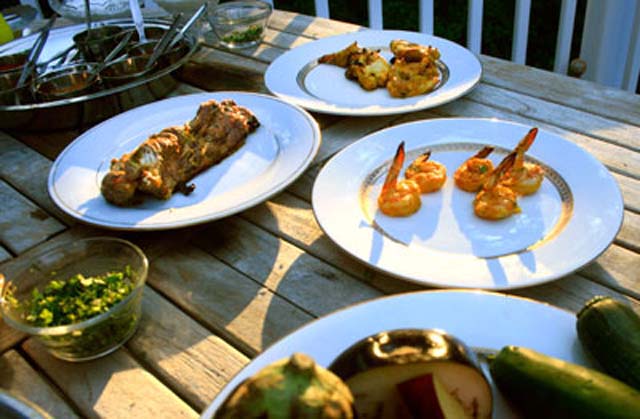
8. Vegetarian, Yes Sir, But At Home Only
Due to cultural factors, for some, pure normal vegetarianism is only followed at home, but outside, (mostly a friend’s place or at parties) they cannot wait to feast on meats. At weddings they are almost attached to the pots from where meat is being served and they become exclusively non-vegetarian. There are several variants of this and the reverse works as well. I have seen Kashmiris eat meat only in Kashmir (as they are assured of its halal source) but moment they come to Delhi or go elsewhere they eat only vegetarian food and no meat.
9. Normal vegetarian but becomes a Non-vegetarian when Drinking
This category is the most unique. Alcohol has an over whelming influence in deciding one’s eating habits. So accompaniment of kababs and tikkas are a must for a merry evening.
10. Day-to-day Vegetarian
Basically they are non-vegetarians but become vegetarian on particular days of the week, mostly on Mondays, Tuesdays, Thursday and Saturdays. They create the most confusion because if you serve them vegetarian on the day they are non-vegetarian they get most offended. Also no non-veg food during religious festivals such as Navaratri or during the month of Shravan (rainy season) complete the characterization of this group.
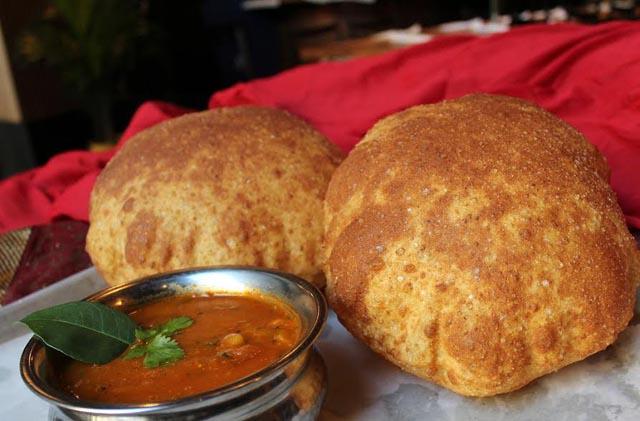
Living with Vegetarians
[dropcap]T[/dropcap]oday, although I remain non-vegetarian, my life and work involves dealing with vegetarians. At the professional level, one of the first public invites I received in New York was to address the convention of “Vegan Vision”. I said no to H.K.Shah, Chairman of Vegan Vision USA on the grounds that I didn’t have the conviction to speak to his congregation. To him, “being vegan is a way of expressing love for the environment, no cruelty to animals and health”. Shah is vegetarian by birth and has turned vegan in the US. At 88, he is full of energy and is championing the case of vegetarianism and veganism as a matter of choice. I subscribe to his ideals but have to change fundamentally before I can address his flock.
At home, my wife turned vegetarian about 5 years back because “she answered the call of her body” and says that for her being vegetarian means “being humane’. She, however, eats eggs in all preparations and also milk products. Her definition of vegetarian doesn’t include fish much to the dismay of her Bengali in-laws.
My daughter turned vegetarian a year ago, overnight, influenced by a Netflix movie ‘Okja’ and a documentary ‘Food, Inc.’, basically on where your food comes from, showing the inhuman way meat is produced. After that she just couldn’t eat any meat or fish. Her determination is noteworthy as she turned from being an avid lover of fish and meats to being totally vegetarian although she includes eggs in her diet. Her twin sister on the other hand is a picky non-vegetarian restricting herself to the meats we normally eat in India. So in the immediate family of four, there are two and a half vegetarians. Sweet revenge for the fundamentalist.
Vegetarian or Non-Vegetarian?
[dropcap]A[/dropcap]ll over the world vegetarianism/veganism is getting popular. As climate change becomes a major concern for young people, plant based diets are seen as way of reducing our carbon imprints. Also the modern methods and manners in which meat and milk is produced is very upsetting to many. They cannot just get around to consuming meat. So there are more vegetarians among us then one can guess. The best way is to clearly state one’s choices- what is acceptable and what is not. Most do not understand what pure vegetarians or day-to-day vegetarians are all about.
I will end with a hilarious story of a vegetarian Indian Union Cabinet Minister who was visiting Shanghai in 2005. We had advised the hosts that he was a pure vegetarian. True to their word, they served vegetarian food at the State banquet. But all the courses had food shaped as animals such as chicken, cow or lamb depending on the non-vegetarian menu. This was revolting to the Minister who couldn’t get around to eating animals even if they were made of potatoes or cheese. So he remained hungry. Even the dessert was bird shaped.
In desperation he asked the steward what the others were having for dessert. The answer was ice-cream. So the Minister asked for ice-cream. The Chinese hosts would hear none of it as the ice-cream, they insisted, contained egg and they were under strict instructions that the Indian Minister was a pure vegetarian. I had to face a hungry (angry) Minister in the hotel lobby when he returned from the banquet. He regaled us with this story when thereafter we went to an Indian restaurant looking for normal vegetarian food.
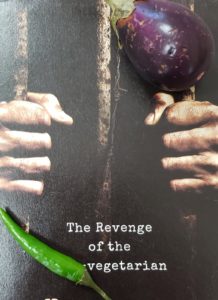
(Picture courtesy & title inspiration: The Revenge of the non-vegetarian by Upamanyu Chatterjee.)

Ambassador Sandeep Chakravorty is the Consul General of India in New York. While he has many weighty matters on his plate, his love of language, his wit, and passion for good food come together in his writing. His blogs can be seen at sandiplomat.blogspot.com Follow on twitter @chakraview1971

1 Comment
Lovely article. Being a food blogger, food lover and a past Indian embassy employee I enjoyed reading the article